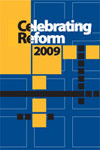Overview
In 2001, Bolivia’s borrowers had taken out too many loans and they could not pay them back. Amidst an economic crisis, people were demanding that their debts be forgiven. In July 2001, the situation got so bad that hostages were taken at the Superintendence of Banks and Financial Entities, Bolivia’s financial regulator. What could regulators do?
Part of the solution was to establish a credit bureau to share information between regulated and unregulated lenders—such as unregulated microfinance institutions (MFIs)—in 2003. Infocred, the new bureau, was accredited and began distributing reports in 2004. As a result, lenders can now get a much broader view of the credit profile of potential borrowers. This case study tracks how Bolivia’s regulators overcame many obstacles—including legal hurdles—to launch Infocred with shared credit information.
Main Findings
- The new private credit bureau helped improved lending operations—particularly for MFIs—as lenders could verify a potential borrower’s overall indebtedness before extending credit. Notably, in 2008, non-performing loans represented less than 1.8% of microfinance loans’ overall portfolio.
- From 2005 to 2008, the number of individuals receiving microfinance loans reported to Infocred more than doubled, reaching close to 2 million borrowers.
- Bolivia scored a 5 out of 6 points on the Doing Business 2009 “depth of credit information” index, indicating that the bureau had many important features—including more than 2 years of historical credit information, shared positive and negative data, and guarantees that borrowers could inspect and contest information held by the bureau.

